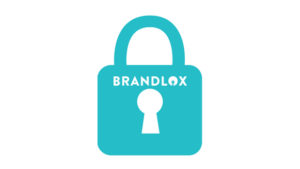
When information security experts talk about the “Amazon virus,” they are collectively referring to the multiple online scams, malware and phishing attacks aimed at Amazon shoppers. One such scam was recently reported by the Devon and Cornwall Territorial Police in the United Kingdom: a series of fake email messages prompted shoppers to visit links that took them to websites designed to look like Amazon login pages. Once hackers obtained Amazon user credentials, they made purchases and diverted delivery addresses to intercept the goods.
Aside from the aforementioned phishing attack, many Amazon shoppers have also fallen for gift cards and free iPhone scams that resulted in their computers being infected with malware. The general recommendation to Amazon shoppers is to make sure their systems are protected by virus protection software and internet security suites. However, Amazon independent sellers require even stronger protective measures.
Security Issues Faced by Amazon Sellers

The online risks that independent sellers face on the Amazon Marketplace tend to be more complex than those faced by shoppers. You do not have to worry too much about your Seller Central account because it is safeguarded by Amazon Web Services, which is perhaps one of the most secure cloud computing platforms in the world. However, you have to be concerned about the integrity of your brand and the safety of your product listings.
On the third-party Amazon Marketplace, online sales are made possible by the Amazon Standard Identification Number, which is a valuable electronic record assigned to all items that shoppers can order. ASINs are vulnerable to hijacking, a malicious strategy used by unauthorized sellers and counterfeiters who take advantage of the open nature of Amazon Marketplace.
Perfect competition is the foundation of the Amazon business model, and this means allowing sellers to edit, list and sell as many ASINs as they can handle. What rogue sellers are known to do is hijack ASINs even if they do not have the underlying items; the idea is to bait shoppers into placing orders and then switching products with alternative or counterfeit products.
Protecting Your Exclusive ASINs
It is generally difficult to convince Amazon to lock your ASINs so that they cannot be listed by other sellers or hijacked. Unless you are the owner of a major luxury brand, the ASINs you create will be left wide open to other sellers; this is the Amazon way.
If you are a product manufacturer or exclusive distributor, you will not want others to mess with your ASINs, and this means keeping unauthorized sellers away. Amazon can help you deal with unauthorized sellers who list your products without actually having them in their inventories, but you need to have evidence.
When you subscribe to Brandlox, your ASINs will be monitored around the clock. Let’s say you sell unique, handcrafted iPhone covers that no one else carries; since there should be no reason for other sellers to list your ASINs, this action could suggest a hijacking in progress.
Brandlox will send you a notification as soon as an unauthorized seller jumps on your ASINs; once this happens, you can use various tools such as cease-and-desist letters and test purchases to gather the evidence Amazon legal needs to kick rogue sellers off your ASINs.
Brandlox is like a virus protection for your Amazon Marketplace business. Learn more about keeping counterfeiters, dropshippers and unauthorized sellers away from your products. If you have generated 10 or more unique ASINs, you need to protect your online sales with Brandlox. Contact us today to learn more and arrange a free trial or call us at 866-848-6072.

